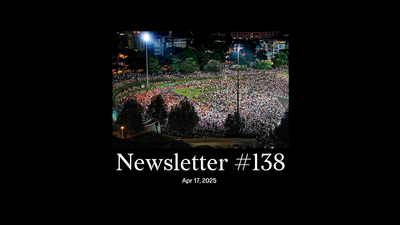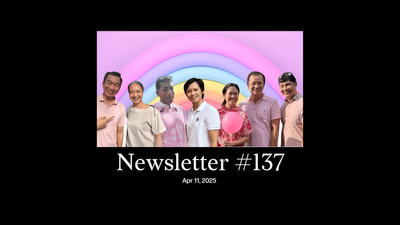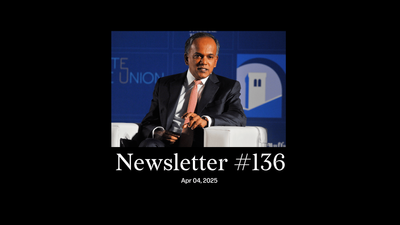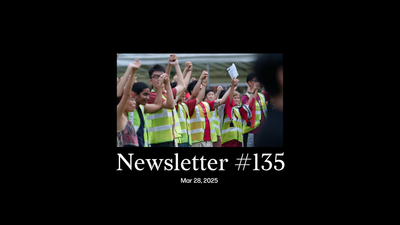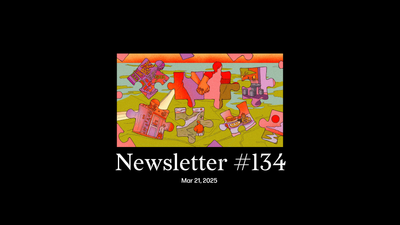Dear reader,
- Jom’s essay of the week: “Wild Rice’s ‘Hotel’: how do we host our histories?” by Corrie Tan, our arts editor, does what great criticism should—interrogate a piece of work to reveal deeper truths about its essence, thereby creating a space where artists, critics, theatre-goers, and other members of the public can engage in a communal meditation on the human condition. Moreover, since “Hotel”, first staged in 2015 and coinciding with SG50, is a show about Singapore itself, Corrie’s piece invites us to contemplate “the long exposure of Singaporean identity-formation”. What does it mean to be an inhabitant of this city-state, to be indelibly shaped by it, but also an agent in its shaping? In a week when Swiftmania has forced us to think about our place in this region, if not the world, it’s a timely read.
- “Singapore This Week”: In Jom’s weekly digest, we discuss politicians’ resistance to public asset disclosures, a Budget speech that didn’t get enough attention, efforts to soothe the trauma of adoption, the public shaming of litterbugs, Philip Glass’s music, a Kampong Gelam art walk, Temasek’s potential investment in OpenAI, and more.
Swiftmania is out of control. Check out this montage of politicians, from both sides of the aisle, falling over themselves to incorporate Taylor Swift’s lyrics and song titles into their parliamentary speeches. “what is going on in Singapore parliament lol”, the title of the Reddit thread, sums up my feelings.
For a far more thoughtful response to Swift, a little reminder to those who missed “Taylor Swift and the teenage experience”, last week’s essay by Jean Hew, our head of research. It’ll help you understand not only Swift in the Singaporean psyche, but also your own adolescence and memories of it.
There are many points of resonance between Corrie's and Jean’s essays. Corrie’s “Hotel” criticism was first published in our inaugural annual print issue last November, and we’re now re-publishing it online. Jean’s Swift essay, conversely, will be re-published in our next print issue later this year. She’ll update it to include her experience of attending the concert this week.
What does it mean for Jean to have watched Swift perform in 2014 as a teenager, and now again in 2024 as a mid-20s’ woman? Corrie, similarly, first watched “Hotel” in 2015, and last year’s show was her third. Indeed, the delightful meta-narrative throughout is of the critic’s repeated interactions with a particular work over time, as they both evolve along their own trajectories.
I’d like to return for a moment to the evolution of Singapore as host, something Corrie explores. “Watching ‘Hotel’, I wondered, what makes port cities and trading hubs such as Singapore such consummate hosts? As a ‘catch-up port’, Singapore is expected to resolve the delays that ships face at other clogged waystations.”
Reading this again this week, I thought of the logistics-efficiency arguments made for why Singapore supposedly hosts concerts better than our neighbours. And while I’m sure that the privileged Filipinos, Indonesians, and others in town will enjoy their privileged treatment, the way we “host” them, I couldn’t help also thinking about the structural regional inequities, and perhaps injustices, that accompany our wealth, that our politicians take such pride in, but that infuse many of us with some measure of guilt. Yes, this week, Singapore will consummately host thousands of people from across the region—because we left neighbouring Swifties with no choice but to be hosted by us.
Corrie’s discussion about the thin line between “intermediary and gatekeeper”, and her distinction between pelancong, “tourists who travel for leisure and tourism”, and perantau, “those who migrate voluntarily in search of new opportunities and the dissemination of cultural knowledge”, should also prompt introspection about Swift, and the commercial, transactional form of travel that predominates here.
Hard questions should be asked of Swift herself, of course. Instead of travelling around South-east Asia and revelling in its diversity—basking in the embrace of Swifties in their respective homes—she’s chosen to camp in the city with the least distinctive regional identity. Class intersects too, because she’s chosen to avail herself only to the richest in the region—Singaporeans, and those who can afford to travel here.
Corrie’s essay, then, has travelled across time to touch us in surprising ways, like the “Hotel” heirlooms and stories she writes about. “Our ancestors, making decisions based on the limited information they had access to at the time, have sent long reverberations into the future we are currently living. What does it mean, ‘Hotel’ asks, to pay attention to the long path of history beyond the span of a single life, or the lifespan of a single polity?”
I do wonder if our ancestors, whether those from 700 or 200 years ago, could have foreseen that Singapore, the “peninsular port city” and “gleaming metropolis nation-state”, would one day have a Parliament whose most frequently cited foreigner, perhaps, is not a philosopher, religious teacher, tech guru or politician, but a young American singer.
Strange times. But, as Corrie says in a concluding line, “The past may be a foreign country, but the future doesn’t need to be.”
Jom buat,
Sudhir Vadaketh
Editor-in-chief, Jom
If you've enjoyed our newsletters, please scroll to the bottom of this page to sign up to receive them direct in your inbox.


